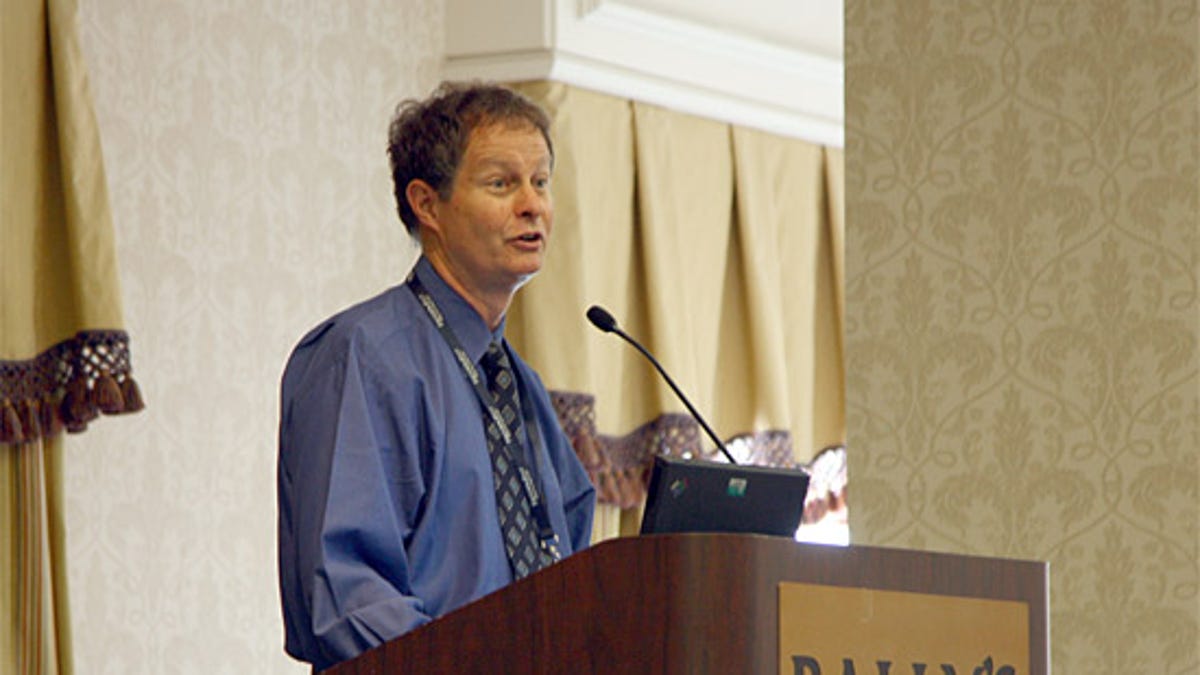Whole Foods CEO: Bill Gates should consider "conscious capitalism"
In January, Bill Gates recommended that corporate execs embrace a philosophy he called "creative capitalism." Whole Foods CEO John Mackey suggests an alternative approach that's a bit more free-market.

LAS VEGAS -- Whole Foods CEO John Mackey doesn't exactly disagree with Bill Gates' recent call for "creative capitalism."
Gates, of course, gave a high-profile speech in January that called for corporate executives to engage in "market-based social change" to to do "work that eases the world's inequities." The non-financial rewards? "Recognition" instead of, or in addition to, profits.
But Mackey doesn't completely agree with Gates either. At a speech here at a political conference on Thursday, the co-founder of the exclusive grocery chain sketched out a more free-market path, Whole Foods-style, that he calls "conscious capitalism."
Conscious capitalism doesn't include much of what Gates called "a direct role for governments." Mackey views himself as something of a libertarian -- he candidly admits that "I'm not a big fan of government" -- and says that "economic freedom is what results in poverty reduction," and "big government aid projects" don't.
Mackey does agree with Gates, however, on finding new ways to view the humanitarian dimensions of capitalism. "Corporations have the potential to discover a deeper business purpose," he said. "The fact of the matter is that maximizing profits and maximizing shareholder value, while necessary, is not a particularly inspiring goal."
That's a not-very-subtle reference to Whole Foods' own, and rather unique, corporate philosophy. Its has two components: "to change the way the world eats" and "to create a workplace based on love and respect." Its employees vote for their own benefit plans (they chose a more generous health care plan with pretax savings accounts, at the expense of more expensive vision and dental care). For the last decade, it has, every year, appeared on the list of Fortune's 100 Best Companies To Work For.
Mackey gave a partial endorsement to a critique of Gates' views penned by William Easterly, a New York University economics professor. (Here's our own analysis of creative capitalism that we posted at News.com.)
Easterly argues: "Mr. Gates' speech attacks the system that has historically done the most to alleviate poverty -- traditional capitalism -- in favor of an untried and implausible alternative -- an illusory Third Way that mixes profits and altruism. The effect of such advocacy may be to increase job opportunities for aid bureaucrats -- now they can work for CSR as well as for the World Bank! -- but to decrease job opportunities for poor workers as capitalism retreats under political attack."
Mackey doesn't go that far. But he does argue that poverty afflicted something like three-quarters of the world's population a few centuries ago and now -- thanks to capitalism -- it affects less than one-quarter. "Before the 21st century is over, poverty is something we'll only see in museums," he predicts.
The Whole Foods chairman and CEO did make a passing reference to what he's most famous for in technology circles: anonymously-posted comments on discussion boards, which led to a government investigation upon discovery. "I've learned to be a little more careful in my communication," he joked, adding that he believes government officials selectively leaked details of the investigation to the press.

